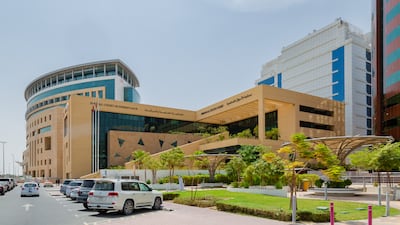Dubai Courts has established a department to deal with cases of non-Muslims' inheritance and the execution of their wills.
The department guarantees the application of non-Muslims' personal laws and the management of their probate matters, Dubai Media Office said in a statement.
Judge Mohammed Al Shamsi, head of the Special Court of Inheritance in Dubai, said the department aims to expedite procedures for individuals.
He outlined four instances when a case could be brought to the new department, with supporting documents required in each instance:
- in the first instance, the documents must include a legal notice, an inventory of inheritance, a legal or official document specifying heirs and their shares.
- in the second type of case, applicants should submit an official document proving the existence of a will issued by Dubai Courts or any other courts within the UAE, excluding the Dubai International Financial Centre courts.
- if none of the above documents are available, there is a third case where a judicial ruling proving the death of the deceased and identifying the heirs must be provided.
Mr Al Shamsi said if the ruling is issued outside the UAE, the file can only be opened after it is attested by the Embassy of the UAE in that country or the Ministry of Foreign Affairs.
- in the fourth case, Mr Al Shamsi said if a request to open an inheritance file is based on a will not issued by the courts within the UAE, then the provisions of UAE law concerning the management of non-Muslim inheritance matters and the execution of their wills, as applied in Dubai, come into play.
A lawsuit for the execution of the will is registered, along with a certified copy of the applicable law for the will, whether it is the law of the testator's nationality or the law specified in the will.
The director of the lawsuit ensures the completion of the documents, payment of judicial fees, schedules the nearest session and notifies all parties mentioned in the will.
Mr Al Shamsi said the non-Muslim inheritance department applies a single-session system, aiming to reach a decision on the request within one sitting.
After the decision accepting the execution of the will is issued, along with the file opening application, it is presented.
If further clarification and enquiries are required, a request is submitted to the court president for approval to open the file through the Wayak system – Dubai Courts' system that allows direct communication on cases between its departments.
Mr Al Shamsi said the new department would not open cases in which a will has been issued or authenticated by the Dubai International Financial Centre courts.
In 2017, Dubai established a law governing all wills and probate matters in the emirate, including the DIFC.
The law gives non-Muslims the right to prepare their wills within a clear legislative framework that ensures the application of their personal laws.
It also seeks to improve litigation procedures related to their wills and probate matters, simplifying and making them enforceable.
In August, Dubai established a new court dedicated to dealing with inheritance disputes involving Muslims and non-Muslims of all nationalities.
Claims can be registered online and will first be seen by a preparatory judge who will revise them and attempt to bring about an amicable settlement.

